Arts & Entertainment
2014 YEAR IN REVIEW: Film
‘Stranger,’ ‘Imitation Game’ and indie fare among year’s best
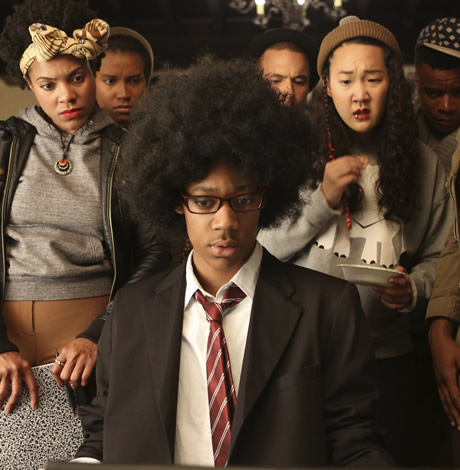
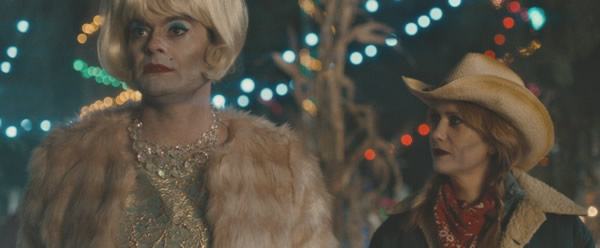
Bill Hader and Kristen Wiig in ‘The Skeleton Twins.’ (Courtesy Roadside Attractions)
There were strong feature films (both mainstream and indie releases), fascinating documentaries and several supportive venues and festivals in Washington that are slowly growing a queer film culture here making 2014, overall, an excellent year in film.
One of the best releases was one of the first — “Stranger by the Lake.” This award-winning French film was billed as an erotic gay thriller and it lived up to that description. The action unfolds on the banks of a lake where men meet for sex, which is shown in graphic detail. The thriller starts when the seemingly innocent Franck watches Michel swim out into a lake with a man and swim back to shore alone. Director Alain Guiraudie skillfully captures the mundane yet thrilling rituals of cruising and the inscrutable passion that arises between Franck and Michel.
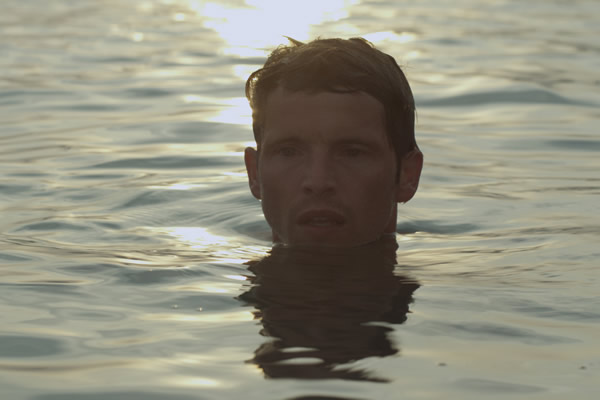
Pierre Deladonchamps in ‘Stranger by the Lake.’ (Photo courtesy Strand Releasing)
Other highlights included:
- • “Calvary” opens when Father James (Brendan Gleeson) is threatened with death by an unseen man in the confessional who was sexually molested by a priest when he was a boy. Among the suspects are a hypocritical closeted detective and a Hollywood-obsessed gay hustler who has also been the victim of clerical sexual abuse.
- • Based on a true story, “Pride” tells the tale of an unlikely alliance between gay and lesbian activists from London and striking Welsh coal miners. While the screenplay relies a little too heavily on well-worn plot devices, the movie is an infectious and uplifting tale of personal growth and political solidarity.
- • Written and directed by talented newcomer Julien Simien, “Dear White People” looks at the lives of four black students who get drawn into a racial incident at a predominantly white college. One of them is Lionel Higgins (Tyler James Williams), an undergraduate journalist who doesn’t fit in with either the gay or African-American student groups. Simien’s groundbreaking film marks the first time that a gay character has been featured in a predominantly African-American movie.
- • “The Skeleton Twins” stars “Saturday Night Live” alumni Kristen Wiig and Bill Hader as estranged twins who are reunited after his suicide attempt. He returns to their hometown to recover and to reignite an affair with his high school English teacher (Ty Burrell) while she tries to work out her marriage to Luke Wilson. Both Wiig and Hader turn in strong nuanced performances and Hader’s scenes in drag are wonderful.
- • “Hector and the Search for Happiness” stars Simon Pegg as a bored psychiatrist who travels the globe to find the secret of happiness. One of his tour guides is an old friend who has found happiness by coming out of the closet.
- • Though technically a made-for-TV movie, “The Normal Heart” debuted in May on HBO and was a widely lauded adaptation of Larry Kramer’s legendary AIDS-themed play of the same name.
- • “The Way He Looks” is a charming Brazilian coming-of-age tale about Leo, a blind teenager who’s trying to escape from his overprotective mother. Leo befriends Gabriel, the new kid in town, and feelings begin to flicker between the two boys, much to the dismay of Leo’s best friend, Giovanna.
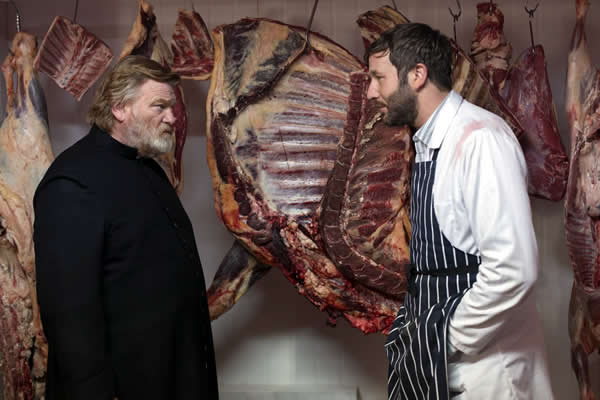
Brendan Gleeson, left, and Chris O’Dowd in ‘Calvary.’ (Photo courtesy Fox Searchlight)
While it didn’t include any LGBT content, one of the most progressive and thought-provoking movies of 2014 was “Belle,” a beautifully filmed movie about a mixed-race heiress being raised by her aristocratic uncle in eighteenth-century England. Director Amma Asante and a knockout ensemble cast tackle complex themes of race, class and gender and tell a moving story that combines intimate details and epic historical sweep.
The year in LGBT feature films came to a dramatic conclusion with “The Imitation Game,” the story of Alan Turing (Benedict Cumberbatch), the gay British mathematician who broke the German Enigma code during World War II but was later prosecuted for his homosexuality.
It was also a great year for LGBT-themed documentaries. One of the most notable was HBO’s “The Case Against 8,” which followed two California couples who brought their fight for marriage equality to the U.S. Supreme Court.
Other standout documentaries included “Shoot Me,” an incisive portrait of the legendary actress Elaine Stritch who passed away earlier this year; “Campaign of Hate: Russia and Gay Propaganda,” a searing examination of the spread of anti-gay sentiment and legislation in Russia; and, “Through a Lens Darkly,” a fascinating exploration of how photography has shaped the African-American community, including LGBT people of color.
There were, of course, a few disappointments. The highly anticipated “Love is Strange” starred John Lithgow and Alfred Molina as long-term partners whose lives fall apart when they lose their rent-controlled Manhattan apartment. Luminous performances from Lithgow and Molina could not overcome Ira Sachs’s implausible script and slack direction. Jennifer M. Kroot’s “To Be Takei” failed to create a cohesive portrait of the actor and activist, and in “Citizenfour” lesbian filmmaker Laura Portras and gay journalist Glen Greenwald failed to fully question the actions of NSA whistle-blower Edward Snowden.
The emerging queer cinema scene in D.C. has been strongly supported by a number of marvelous venues and film festivals. The Landmark Theatres (on E Street in downtown D.C. and on Bethesda Row in downtown Bethesda) and the West Ed Cinema in Foggy Bottom frequently present LGBT movies, as does the newer Angelika Film Center Mosaic in Fairfax. AFI Silver in downtown Silver Spring often features LGBT works in its delightfully eclectic mix of contemporary independent releases and classics from Hollywood and international cinema.
The acclaimed D.C. Shorts Film Festival, headed by openly gay filmmaker Jon Gann, always includes strong LGBT programming, as does AFI Docs, which will now be headed by Michael Lumpkin, who served for more than 25 years as both executive director of Frameline and Festival Director for the San Francisco International LGBT Film Festival. LGBT films have also been featured at the new Middleburg (Virginia) Film Festival.
With sponsorship from the D.C. Center for the LGBT Community, Human Rights Campaign and the Washington Blade, Reel Affirmations has returned to offer monthly move nights and other film events.
The early winter months of 2015 give LGBT cinephiles in D.C .the chance to watch some of 2014’s best releases on DVD and to anticipate the exciting releases of 2015.
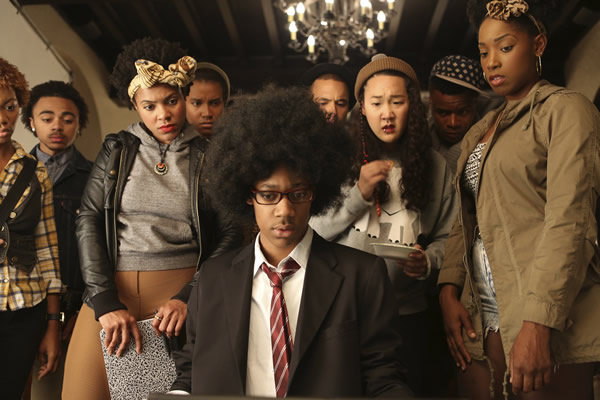
Tyler James Williams, center, in a scene from ‘Dear White People.’ (Photo by Ashley Nyugn; courtesy Roadside Attractions)
Photos
PHOTOS: Sydney Gay and Lesbian Mardi Gras Parade
48th annual LGBTQ event held in Australian city

The 48th annual Sydney Gay and Lesbian Mardi Gras Parade was held on Feb. 28.
(Photos by Cori Mitchell)




















a&e features
35 years after ‘Truth or Dare,’ Slam is still dancing
Salim Gauwloos on Madonna, HIV, and why he almost didn’t audition for Blond Ambition Tour

Most gay men of a certain age remember “the kiss.”
It was the moment Madonna’s dancers Salim Gauwloos and Gabriel Trupin locked lips in the hit 1991 documentary film “Truth or Dare,” which is celebrating its 35th anniversary this spring.
The kiss was hot, but what made it groundbreaking is that it appeared in a mainstream Hollywood movie that screened in suburban multiplexes across the country. This wasn’t an obscure art house film. The movie, and tour on which it was based, received months of breathless media attention all over the world for bold expressions of female empowerment and queer visibility. Madonna was threatened with arrest in Toronto for simulating masturbation on stage and Pope John Paul II urged Catholics to boycott the show, triggering a media firestorm.
“Truth or Dare” was billed as a behind-the-scenes documentary of the tour, but it quickly became clear that the real star of the show wasn’t Madonna, but rather her colorful troupe of seven backup dancers, six of whom identified as gay: Kevin Stea, Carlton Wilborn, Luis Xtravaganza Camacho, Jose Gutierez Xtravaganza, Gauwloos, and Trupin; Oliver Crumes III identifies as straight.
We saw them party and march in the New York City Pride parade. They were unabashedly queer at a dangerous time — before protease inhibitors began to stem the AIDS plague and before most celebrities and politicians embraced the gay community in any real way. Being out in 1991 carried major risks to career and reputation.
Enter Gauwloos, one of those brave dancers who vogued his way into the hearts of countless gay men entranced by his handsome looks, his stage presence, and dance skills.
Gauwloos — known then and now as “Slam”— sat down with the Blade to talk Madonna, the lasting impact of “Truth or Dare,” the public disclosure of his HIV status, and plans for a new book on his life.
His story is fascinating — from growing up in Europe to dancing in New York to landing the gig of a lifetime with Madonna. He performed on that tour while secretly HIV positive and went without medical treatment for 10 years because he was living in the United States as an undocumented immigrant. Not even Madonna knew of his HIV status. Two other dancers on the tour were also HIV positive but no one talked about it. Ironically, Madonna was singing “Express Yourself” and advocating for condom use during her concerts yet backstage three of her dancers were secretly positive.
“A lot of people were dying so I wasn’t going to tell Madonna I had HIV,” said Slam, now 57. “And the others didn’t either. It wasn’t the moment to do it. She used to make speeches about Keith Haring and AIDS and I thought it’s going to be me next.”
Gabriel Trupin died of AIDS in 1995. Slam was diagnosed at age 18 in 1987, a frightening time when a positive test result often meant a death sentence. He booked the “Blond Ambition Tour” at age 21 after moving to New York. His friends encouraged him to audition but Slam resisted because he wasn’t a big Madonna fan.
“It was crazy, everyone wanted that job,” he said, “but I wanted to dance with Janet Jackson and Paula Abdul.” He listened to his friends and shortly after the audition, Slam received a call from Madonna herself inviting him to join the tour.
“We all wanted to be stars but not even Madonna knew how big that tour would become. The way it was choreographed and directed, the stars aligned. … It never looks dated even today.”

The world tour kicked off in Japan in April 1990 then moved to the United States and Europe, stirring controversy wherever it went. There was the iconic cone bra; the aforementioned simulated masturbation during “Like a Virgin”; and religious imagery that offended many Catholic groups and the Vatican.
And the controversy didn’t end with the tour. Cameras were rolling throughout the tour for what Slam thought would be a “video memory” for Madonna. But as the tour unfolded, director Alek Keshishian reportedly became more interested in what was happening behind the scenes so plans for mere tour footage were expanded into a full documentary.
“We were young and partying and didn’t really know what was going on,” Slam said. “You live in this celebrity bubble and you sign a paper – I don’t even know what I signed.”
In 1992, Kevin, Oliver, and Gabriel sued Madonna for invasion of privacy and fraud claiming she used some footage without their consent. They claim they were told nothing would be included in the film that they didn’t want to be seen. In one specific incident, Gabriel alleged that he told producers he didn’t want the scene of him kissing Slam to be in the film as he wasn’t fully out.
“Gabriel was forcibly outed,” in the movie, Kevin said in a 2016 interview.
Slam did not join his colleagues in the lawsuit.
“I couldn’t sue because I was illegal but I wasn’t ever going to sue,” Slam said. “I’m not a suing kind of person. But good for them, they fought for it and won. A lot of people don’t have the balls to sue Madonna.” The suit was settled two years later for an undisclosed sum.
“We were all conflicted about the kiss,” he said with a laugh. “The kiss, oh my God, my boyfriend is going to kill me! Belgian stress!”
Beyond worrying about his boyfriend’s reaction, Slam had concerns about the impact of being openly gay on his modeling career.
“In 1990, you couldn’t get high fashion campaigns as an openly gay model,” he said. “I was worried about that. I couldn’t get a campaign because I was gay. My agency told me to say I was straight and it was just a game.”
In 2016, pegged to the 25th anniversary of “Truth or Dare,” the surviving six dancers filmed a documentary about their lives post-Madonna titled “Strike A Pose.” In it, Slam publicly revealed his HIV status for the first time in an emotional scene with his former colleagues.
“I found the strength to tell the world I have HIV,” he recalls. “I was scared but I felt brave. The outcome and messages were beautiful. After I saw ‘Strike A Pose,’ I knew we gave people hope. And not just for gay people.”
He was infected in 1987 but didn’t get treated until 1997. After the tour ended, he said he went into a depression and his agency dropped him.
“I was partying too much after the tour,” he recalls. “I made a decision to live as an illegal alien.” In 1997, Slam collapsed and was rushed to the hospital with pneumonia.
“They started treating me and thank God the new HIV drugs were out, the cocktails, it took me a couple months to get better.”
Madonna didn’t participate in “Strike A Pose” and Slam said he hasn’t seen or spoken to her since the end of the tour. He said he had no idea of the impact “Truth or Dare” would have.
“You look at this movie in 1991 and you don’t think it’s going to be such a big thing and 35 years later it’s still helping people,” he said. “It was helpful for people who felt alone at that time. It was such an important documentary.
“I don’t think younger gay people realize how important Madonna was to gay and queer visibility — she was a big part of it. We showed the world it’s OK to be gay and that was the great message of this movie.”
He noted that, decades later, many of his friends have transgender kids and that queer culture is represented in much of mainstream pop culture.
“It’s amazing how far we’ve come,” he said. “I know we’ll always be marginalized but we have come so far. I’m really proud of our community. The current nightmare will be over and I do believe that things will get better.”
Referencing President Trump’s attacks on the LGBTQ community and crackdown on immigration, Slam described the situation in the U.S. today as “sad.”
“Everything is such a mess,” he said. “Some of these people have lived here 30-40 years and they take you out of your home. I can’t even imagine. It breaks my heart. When I was illegal it was a different story.”
Slam met his husband, Facundo Gabba, who’s from Argentina, in 2000, and he helped him get a legal case together to win citizenship. He filed a case in 2001 and was told there was a 99 percent chance he wouldn’t be permitted to stay in the United States because they weren’t allowing HIV-positive immigrants to remain in the country. But he got his green card anyway in 2005 and became a U.S. citizen in 2012.
Today, Slam and Gabba live in Brooklyn, though they travel a lot because “I can’t take the cold.” The couple married in Argentina in 2010 and in the U.S. in 2016.
Slam is still dancing and working as a choreographer. He’s teaching at a contemporary dance festival in Vienna in July and even offers online lessons via Salimdans.com.
As a longtime HIV survivor, Slam is dedicated to a healthful lifestyle.
“You have to keep moving; when you move you stay healthy,” he says. “Dance heals everything. I do yoga, I eat healthy and clean as possible. I don’t watch much TV … I try to stay healthy and positive. If I absorb all of the negativity I would be sick.”

In addition to his ongoing work in dance and choreography, Slam is in the early stages of writing a book about his extraordinary life and pioneering career.
“I always knew I had a book inside of me. I want to talk about my HIV status. I know I can inspire more people. I want to tell even more secrets in the book; secrets are a poison so I want to tell everything.”
Among those secrets, he notes, is a desire to write about his strict Muslim father and the years he spent as an undocumented immigrant in America.
“Those are the things I want to talk about, the struggles. It’s a love story, hope and resilience. I know it will help people.”
As for his friends from the tour, Slam says he remains in contact with Gabriel’s mother and José Xtravaganza is his best friend. Baltimore’s Center Stage theater is currently developing a new musical about Xtravaganza’s life. And Slam said he occasionally talks to Oliver, though “he still can’t pronounce Sandra Bernhard’s name.”
At the end of our interview, Slam indulged a round a rapid fire questions:
• Favorite song to perform in the “Blond Ambition” tour? “Express Yourself.”
• Aside from Madonna, who was your favorite artist you worked with? Toni Braxton in “Aida” on Broadway.
• Favorite Madonna song? “Live to Tell”
• Favorite Madonna video? “Bedtime Stories”
• What’s more stressful: performing in a concert or performing on the VMAs? “Both, because we always had to be perfect.”
• Did you go to Madonna’s recent “Celebration” tour? “I didn’t see the show but I saw clips online.”
• What do you remember most about performing “Vogue” at the VMAs? “It was nerve-racking for them to flip those fans.”
• When was the last time you vogued? “I teach classes so a couple weeks ago.”
Books
Love or fear flying you’ll devour ‘Why Fly’
New book chronicles a lifetime obsession with aircraft

‘Why Fly’
By Caroline Paul
c. 2026, Bloomsbury
$27.99/256 pages
Tray table folded up.
Check. Your seat is in the upright position, the airflow above your head is just the way you like it, and you’re ready to go. The flight crew is making final preparations. The lights are off and the plane is backing up. All you need now is “Why Fly” by Caroline Paul, and buckle up.

When she was very young, Paul was “obsessed” with tales of adventure, devouring accounts written by men of their derring-do. The only female adventure-seeker she knew about then was Amelia Earhart; later, she learned of other adventuresome women, including aviatrix Bessie Coleman, and Paul was transfixed.
Time passed; Paul grew up to create a life of adventure all her own.
Then, the year her marriage started to fracture, she switched her obsession from general exploits to flight.
Specifically, Paul loves experimental aircraft, some of which, like her “trike,” can be made from a kit at home. Others, like Woodstock, her beloved yellow gyrocopter, are major purchases that operate under different FAA rules. All flying has rules, she says, even if it seems like it should be as freewheeling as the birds it mimics.
She loves the pre-flight checklist, which is pure anticipation as well as a series of safety measures; if only a relationship had the same ritual. Paul loves her hangar, as a place of comfort and for flight in all senses of the word. She enjoys thinking about historic tales of flying, going back before the Wright Brothers, and including a man who went aloft on a lawn chair via helium-filled weather balloons.
The mere idea that she can fly any time is like a gift to Paul.
She knows a lot of people are terrified of flying, but it’s near totally safe: generally, there’s a one in almost 14 million chance of perishing in a commercial airline disaster – although, to Paul’s embarrassment and her dismay, it’s possible that both the smallest planes and the grandest loves might crash.
If you’re a fan of flying, you know what to do here. If you fear it, pry your fingernails off the armrests, take a deep breath, and head to the shelves. “Why Fly” might help you change your mind.
It’s not just that author Caroline Paul enjoys being airborne, and she tells you. It’s not that she’s honest in her explanations of being in love and being aloft. It’s the meditative aura you’ll get as you’re reading this book that makes it so appealing, despite the sometimes technical information that may flummox you between the Zen-ness. It’s not overwhelming; it mixes well with the history Paul includes, biographies, the science, heartbreak, and exciting tales of adventure and risk, but it’s there. Readers and romantics who love the outdoors, can’t resist a good mountain, and crave activity won’t mind it, though, not at all.
If you own a plane – or want to – you’ll want this book, too. It’s a great waiting-at-the-airport tale, or a tuck-in-your-suitcase-for-later read. Find “Why Fly” and you’ll see that it’s an upright kind of book.
The Blade may receive commissions from qualifying purchases made via this post.


















